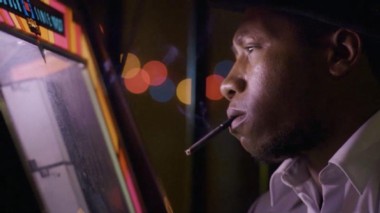It’s hard for me to explain how much of an impact M*A*S*H has had on my life. When I was a kid coming of age in the 1970s and ’80s, the televised series—in which Alan Alda starred as Hawkeye Pierce, a surgeon in a mobile army hospital during the Korean War—was unlike anything else on my radar. It was a prime-time drama that managed to blend a warm humanity with gallows humor and some true horror about the face of war. While the series was set in Korea, the war in Vietnam was still active when the show began, and as a kid I at first simply assumed that was the conflict it depicted—which in many ways, it did.
When I think about it today, a lot of the comedy fades away, leaving behind the drab Army green of the camp tents and the melancholy, sardonic face of Alda, whose Pierce lost his faith many times, if never so completely that he couldn’t stitch the pieces back together again. And I realize now that this seemingly everyday thing—a TV series!—did a lot to help shape one young man’s ideas about conflict, humor, and how to treat your fellow man.
It wasn’t until many years later that I learned that the series that had so affected me was based on a movie (itself based on a novel) by Robert Altman. The director’s 1970 film MASH was, like the show it engendered, a satirical dark comedy that carried an even more pronounced anti-establishment, antiwar message, perhaps because its screenwriter was Ring Lardner, Jr., a Hollywood star who was sent to prison in the 1950s when he defied the House Un-American Activities Committee.
In Altman’s version, playing Sunday and Wednesday this week at Cinemark Theaters, Donald Sutherland plays Pierce, with Elliott Gould on board as his fellow doctor and partner in crime “Trapper” John McIntyre. The pair treat their Korean tour as an exercise in absurdity, refusing to admit not just that anyone is in charge, but that anyone knows what they’re doing there in the first place. While our current trend in war movies is toward a gritty and terrible realism, Altman’s work and the series it inspired took a gentler but no less effective tack, reminding us with sad, frustrated, laughter that the people in charge are sometimes our worst enemies.
Also this week: Tim Sutton’s film Memphis comes to Amherst Cinema. A story about a near-mystical singer drifting through the Tennessee town of the title, it draws on a Memphis legend about singer named O.V. Wright, whose rise and fall serve as a cautionary tale for local musicians.
Willis Earl Beal stars as the singer at the heart of the film, who, though blessed with a divine talent, nevertheless declines to record much, instead following an invisible path of his own. The young actor brings a whiff of legend of his own to the production—a multi-talented artist who was discovered after leaving homemade CDs and hand-illustrated flyers around Albuquerque, Beal remains something of a mystery, even to his fans.
Also at Amherst this week is The Lady Eve, the Preston Sturges classic in which father and daughter con artists team up in an attempt to swindle an heir (Henry Fonda) out of his inheritance. Things go awry when the daughter actually falls for their mark, and she abandons their plot. Things go even more awry when the one-time pigeon figures out the scheme and gives her the boot. With the tables turned, the Lady of the title (Barbara Stanwyck) embarks on a new round of chicanery to get herself back into his good graces.
It screens Sunday and Tuesday as part of the Strong Women Comedy Film Series, inspired by the history (and now stage play) of Mildred E. Walker, an employee at Northampton’s Academy of Music who—after battling the small-minded people in charge of the theater at the time—became manager when her former boss was called to serve in WWII.•
Jack Brown can be reached at cinemadope@gmail. com .



